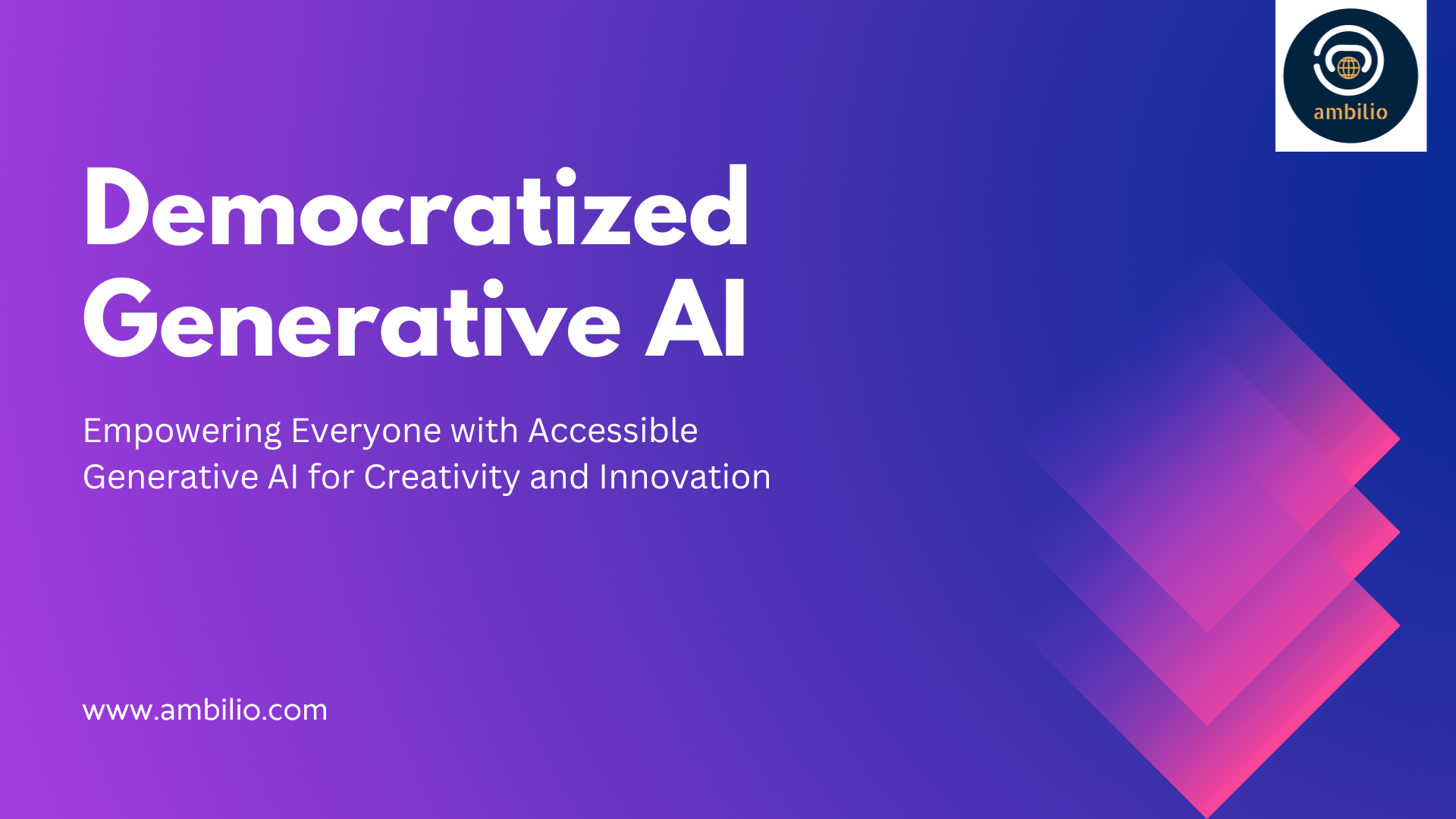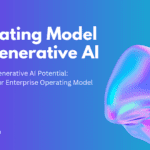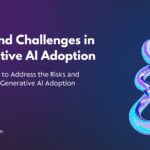Generative AI, the driving force behind AI-generated content spanning images, text, audio, and video, has long been celebrated for its transformative potential. However, its adoption has predominantly been limited to tech juggernauts and elite research institutions, leaving smaller developers and creators on the fringes. The notion of democratized generative AI emerges as a response to this exclusivity, striving to make these cutting-edge technologies accessible to a wider audience, regardless of technical proficiency or available resources. This article explores the multifaceted landscape of democratized Generative AI, delving into its foundational principles, driving forces, and far-reaching implications.
Democratized Generative AI: Foundational Principles
At its essence, democratized Generative AI embodies the ethos of inclusivity and accessibility. It champions the idea that the benefits of AI should be distributed equitably, ensuring that technological advancements serve the greater good of society. By democratizing access to AI tools and resources, this movement aims to democratize innovation, creativity, and opportunity, fostering a more inclusive and participatory technological landscape.
Driving Forces Behind Democratization
Several pivotal developments have propelled the democratization of generative AI, reshaping the technological landscape and expanding access to advanced AI capabilities:
1. Advancements in Model Efficiency
Traditionally, the deployment of advanced AI models necessitated substantial computational resources, rendering them inaccessible to all but the most well-resourced entities. However, breakthroughs in model compression and optimization have led to the development of smaller, more efficient models. Anthropic’s InstructGPT, for instance, represents a significant milestone in this regard, offering comparable performance to larger counterparts while consuming significantly fewer resources. By reducing the computational barrier to entry, these efficient models pave the way for broader adoption and participation in the AI ecosystem.
2. Open Source Initiatives
The open-sourcing of advanced generative models and accompanying codebases has emerged as a cornerstone of democratized generative AI. Projects such as Stable Diffusion, released by Stability AI, and platforms like Hugging Face have democratized access to state-of-the-art AI technology, fostering collaboration, knowledge sharing, and innovation within the AI community. By making advanced AI models freely available to developers and researchers worldwide, these initiatives democratize access to cutting-edge technology, driving progress and inclusion.
3. Emergence of AI Cloud Services
The advent of AI cloud services offered by major providers, including Amazon, Google, and Microsoft, has democratized access to AI capabilities, enabling developers to leverage advanced generative models without the need for extensive computational infrastructure. These cloud services provide accessible APIs that abstract away the complexities of model training and deployment, democratizing access to AI-driven innovation and enabling developers of all backgrounds to integrate AI capabilities into their applications seamlessly.
4. No-Code AI Tools
Democratized generative AI extends beyond the realm of developers and technical experts, embracing non-technical users through the proliferation of no-code AI tools. Platforms such as Midjourney, Jasper, and Tome empower individuals with limited programming knowledge to harness the power of generative AI, enabling them to generate content, manipulate images, and create presentations using intuitive interfaces and simple prompts. By democratizing access to AI-driven creativity, these no-code tools unlock new avenues for expression, innovation, and collaboration.
Implications of Democratized Generative AI
The democratization of generative AI carries profound implications for individuals, industries, and society at large:
1. Democratized Innovation and Creativity
By lowering barriers to access and participation, democratized generative AI unleashes a wave of innovation and creativity, democratizing the creative process and empowering individuals from diverse backgrounds to explore new frontiers of expression and innovation. From artists and writers to educators and entrepreneurs, democratized access to AI-driven tools fosters a more inclusive and vibrant creative ecosystem.
2. Disruption Across Industries
Generative AI has the potential to disrupt traditional industries across sectors such as marketing, advertising, education, and entertainment. AI-generated content, spanning images, text, and video, presents new opportunities for engagement, personalization, and storytelling. However, this disruption may also raise ethical considerations, including concerns surrounding copyright, authenticity, and the role of human creators in the creative process.
3. Ethical Considerations and Societal Impact
The widespread adoption of generative AI raises ethical considerations regarding misinformation, bias in AI models, and the potential impact on employment. As AI-generated content becomes indistinguishable from human-created content, ensuring transparency, accountability, and fairness in AI development and deployment becomes paramount. Addressing these ethical considerations is essential to fostering trust, safeguarding societal well-being, and ensuring the responsible use of AI technology.
4. New Business Models and Opportunities
Democratized generative AI unlocks new business models and revenue streams, facilitating the emergence of AI-as-a-service platforms, AI-powered marketplaces, and innovative AI-driven products and services. From content generation platforms to personalized recommendation engines, businesses have the opportunity to leverage AI technology to create value, drive growth, and enhance customer experiences in novel and transformative ways.
Future Outlook
While democratized generative AI has made significant strides in expanding access to advanced AI capabilities, its journey is far from over. Continued advancements in technology, including developments in few-shot learning, multi-modal AI, and AI safety, hold the potential to further enhance the accessibility, capabilities, and ethical considerations surrounding generative AI. As the democratization of generative AI continues to unfold, it is imperative to navigate its implications thoughtfully, ensuring that AI technology serves the greater good of society and fosters a more equitable, inclusive, and innovative future for all.



